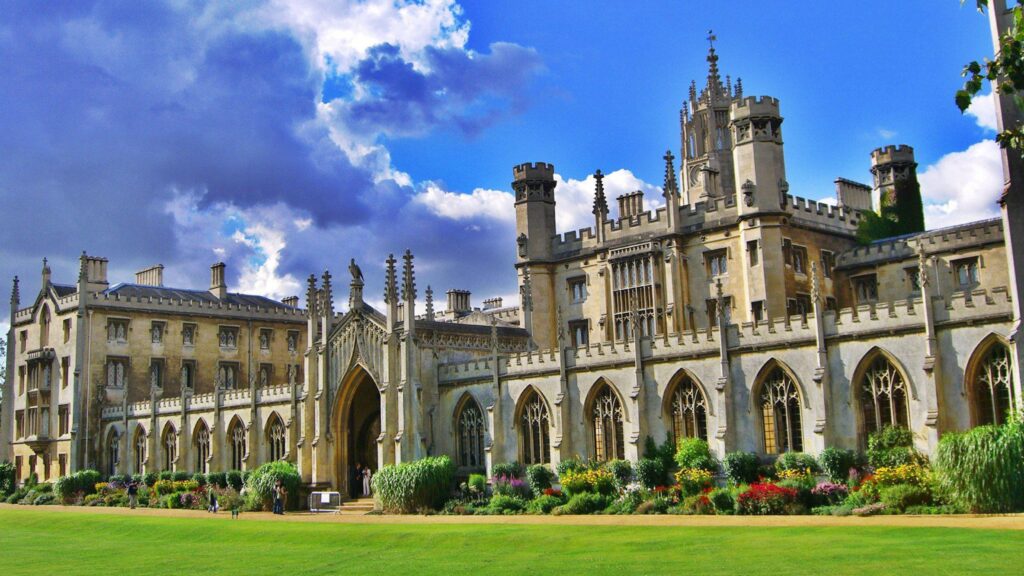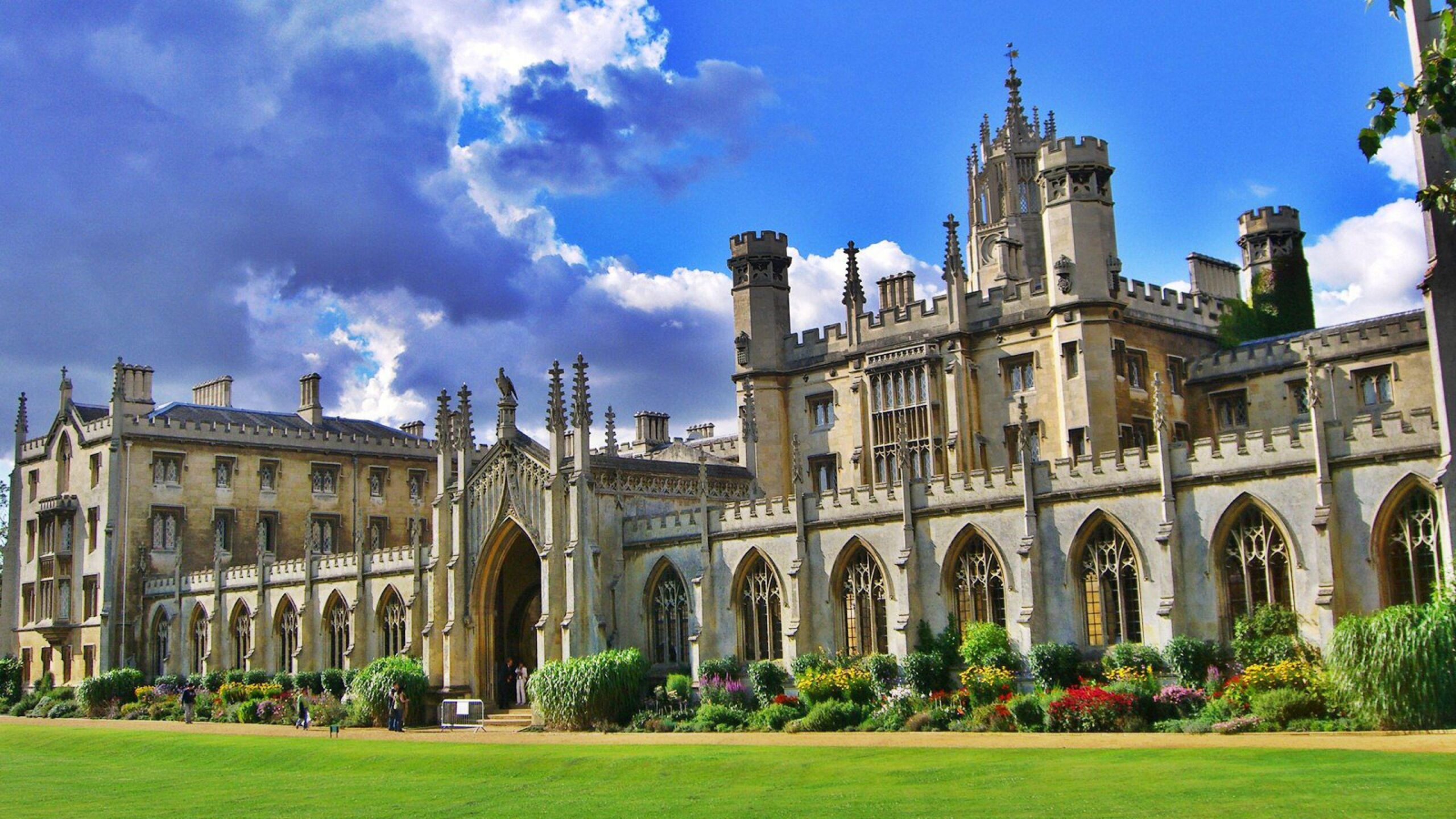
Cambridge University: A Comprehensive Overview of History, Academics, and Global Impact
The University of Cambridge, often simply referred to as Cambridge University, stands as one of the world’s oldest and most prestigious academic institutions. Located in Cambridge, England, it has a rich history dating back to 1209 and has consistently ranked among the top universities globally. This article provides a detailed overview of Cambridge University, covering its history, academic programs, collegiate system, research contributions, student life, and its impact on the world.
A Storied History: From Humble Beginnings to Global Recognition
The origins of Cambridge University can be traced to scholars who left Oxford after a dispute with the townspeople. They sought refuge in Cambridge, establishing what would become one of the most influential centers of learning in the world. The university received a Royal Charter from King Henry III in 1231, solidifying its status as a recognized institution.
Over the centuries, Cambridge University has played a pivotal role in shaping intellectual and scientific thought. Notable alumni and faculty include Isaac Newton, Charles Darwin, Stephen Hawking, and numerous Nobel laureates. The university’s contributions to various fields, from mathematics and physics to literature and medicine, are immeasurable. The legacy of Cambridge University continues to inspire generations of scholars and researchers.
The Collegiate System: A Unique Approach to Education
One of the defining features of Cambridge University is its collegiate system. The university is composed of 31 self-governing colleges, each with its own distinct character, traditions, and resources. These colleges provide students with a close-knit community and a supportive learning environment. Students belong to both the university and their respective college, benefiting from the resources and opportunities offered by both.
Colleges offer accommodation, dining facilities, libraries, and social spaces for their students. They also organize tutorials, seminars, and other academic activities. The collegiate system fosters a strong sense of community and provides students with personalized attention and guidance. Some of the most well-known colleges include Trinity College, King’s College, St. John’s College, and Clare College. Each college has its own history and contributes uniquely to the overall Cambridge University experience.
Academic Excellence: A Wide Range of Programs and Disciplines
Cambridge University offers a wide range of undergraduate and postgraduate programs across various disciplines. The university is organized into six schools: Arts and Humanities, Biological Sciences, Clinical Medicine, Humanities and Social Sciences, Physical Sciences, and Technology. Each school encompasses numerous departments and faculties, offering specialized courses and research opportunities.
Undergraduate courses, known as Triposes, are typically three or four years in duration. The curriculum is rigorous and demanding, emphasizing critical thinking, analytical skills, and independent research. Postgraduate programs include Master’s degrees, PhDs, and professional qualifications. Cambridge University is particularly renowned for its research-intensive programs, attracting top scholars and researchers from around the world. The university’s commitment to academic excellence is evident in its consistently high rankings and the accomplishments of its alumni.
Research and Innovation: Driving Progress and Discovery
Research is at the heart of Cambridge University’s mission. The university is a leading center for research and innovation, conducting groundbreaking studies in a wide range of fields. Cambridge University research contributes significantly to advancements in science, technology, medicine, and the humanities. The university collaborates with industry partners, government agencies, and other research institutions to address global challenges and drive economic growth.
Notable research areas at Cambridge University include biotechnology, artificial intelligence, sustainable development, and public health. The university is home to numerous research centers and institutes, such as the Cambridge Biomedical Campus, the Maxwell Centre, and the Cambridge Graphene Centre. These centers provide state-of-the-art facilities and resources for researchers to pursue their work. The impact of Cambridge University research is felt worldwide, contributing to advancements that improve lives and shape the future.
Student Life: A Vibrant and Diverse Community
Student life at Cambridge University is vibrant and diverse, offering a wide range of opportunities for personal and intellectual growth. Students come from all over the world, creating a rich and multicultural community. The university offers numerous extracurricular activities, clubs, and societies, catering to a wide range of interests. From sports and music to drama and politics, there is something for everyone at Cambridge University.
The Cambridge University Students’ Union (CUSU) represents the interests of students and provides a platform for student voices to be heard. The university also offers a range of support services for students, including counseling, disability support, and career advice. The combination of academic rigor and a supportive community creates a unique and enriching experience for students at Cambridge University.
Global Impact: Shaping the Future of Education and Research
Cambridge University’s impact extends far beyond its campus. The university is a global leader in education and research, shaping the future of various fields. Cambridge University alumni have gone on to become leaders in government, business, academia, and the arts, making significant contributions to society. The university’s research findings have influenced policy decisions and technological advancements worldwide.
Cambridge University also plays a vital role in promoting international collaboration and understanding. The university welcomes students and researchers from around the world, fostering a global network of scholars and innovators. Cambridge University is committed to addressing global challenges and working towards a more sustainable and equitable future. The university’s commitment to excellence and innovation ensures that it will continue to be a leading force in shaping the world for generations to come.
Applying to Cambridge University: A Competitive Process
Applying to Cambridge University is a highly competitive process. The university seeks academically gifted students with a passion for learning and a strong work ethic. Applicants must demonstrate exceptional academic achievement, typically through high grades in relevant subjects. The application process involves submitting an application form, academic transcripts, personal statement, and references. Some applicants may also be required to take pre-interview assessments or submit written work.
Interviews are a crucial part of the Cambridge University application process. Interviewers assess applicants’ intellectual curiosity, analytical skills, and ability to think critically. The interviews are designed to challenge applicants and assess their potential for success in the demanding Cambridge University environment. Successful applicants typically demonstrate a deep understanding of their chosen subject and a willingness to engage in intellectual debate. Preparation for the application process is essential, and prospective students are encouraged to seek guidance from teachers, mentors, and current Cambridge University students.
Cambridge University: A Legacy of Excellence
In conclusion, Cambridge University is a world-renowned institution with a rich history, a unique collegiate system, and a commitment to academic excellence. The university’s contributions to research and innovation have had a profound impact on society, and its alumni have gone on to become leaders in various fields. Cambridge University continues to attract top students and researchers from around the world, fostering a vibrant and diverse community. The legacy of Cambridge University is one of excellence, innovation, and a commitment to shaping the future. [See also: Oxford University: A Comparative Analysis] The university’s dedication to rigorous academic standards, cutting-edge research, and a supportive learning environment ensures its continued prominence on the global stage. Cambridge University remains a beacon of intellectual curiosity and a driving force for progress and discovery. Cambridge University’s future is bright, with ongoing investments in research, infrastructure, and student support. The university is committed to addressing global challenges and working towards a more sustainable and equitable world. Cambridge University’s enduring legacy will continue to inspire generations of scholars and researchers to come. The impact of Cambridge University is undeniable, shaping the landscape of education and research for centuries. Cambridge University stands as a testament to the power of knowledge and the pursuit of excellence. From its historic roots to its modern-day innovations, Cambridge University continues to be a leading force in the world of academia. Cambridge University’s dedication to fostering intellectual curiosity and driving groundbreaking research positions it as a vital contributor to global progress. Cambridge University’s commitment to attracting and supporting the brightest minds from around the world ensures its continued relevance and impact. The university’s blend of tradition and innovation makes it a unique and invaluable asset to the global community. Cambridge University: A pillar of academic excellence and a catalyst for positive change. Studying at Cambridge University is a transformative experience, shaping students into future leaders and innovators. Cambridge University is more than just an institution; it’s a community of scholars dedicated to making a difference in the world. Cambridge University’s influence extends far beyond its campus, impacting industries, governments, and societies worldwide.

